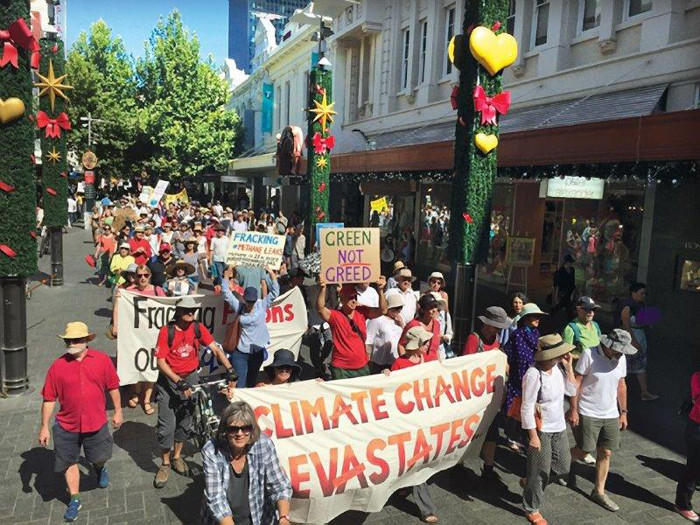After plenty of consternation, a previous failed attempt and monumental public pressure, the leaders of 196 nations signed the Paris Agreement in December sealing a global commitment to tackle climate change.
World leaders have committed their nations to keeping temperatures “well below 2°C above pre-industrial levels and to pursue efforts to limit the temperature increase to 1.5°C.”
This really is a landmark agreement that is both encouraging and challenging. It is a time to celebrate, but also a time to be rolling up sleeves, because fulfilling the commitment will take considerable effort.
Given that the individual pledges currently offered by the signatory countries will only combine to limit temperature rise to 2.7°C, there is still plenty of work to align the pledges with the overall commitment. Australia is no exception. We will need to find bigger cuts to our carbon emissions than the current reduction targets of 26 to 28 per cent on 2005 levels by 2030, if we are to contribute our fair share and move up from third last on the Climate Change Performance Index.
Along with some dubious and even disappointing elements in what is a complex agreement and set of commitments, there are some significant positives to be heralded. The fact that an agreement was struck at all, that it included a push towards 1.5°C as argued by small island nations and, perhaps most importantly, that it provides a significant surge of momentum for action on climate, are all points of praise for the Paris negotiators.
Getting to this position was a difficult road and much admiration goes to the dedicated climate scientists and campaigners who have been pushing for action for so many years. This includes churches and religious leaders who have been forthrightly declaring the need to care for creation and love our vulnerable neighbours and unborn generations.
The Uniting Church in Australia has been a long-term advocate for the need to address climate change and was joined by a broad contingent of other church and faith leaders at the People’s Climate March here in Perth in the lead-up to the Paris negotiations. The involvement of the religious community is not to be underestimated in issues of broad public interest like climate change as seen in the influence of Pope Francis. His involvement has been shown to increase community engagement among people of faith in environmental matters, as shown by Yale University in their study, The Francis Effect.
It is argued that sustained impetus for change may be better coming from a religious perspective since the fields of compassion and morality are part of our core components – as compared, for example, to the public perception of politicians. Research suggests that people are more likely to support climate change action if it is linked to more altruistic messages than just plain facts and figures, so the role of churches in promoting the broad benefits of climate action will continue to be important.
It is certainly not a time to be sitting back, as the transformation to a low-carbon economy will not automatically unfold. If we are to prevent the worst effects of climate change from occurring we need to build on the positives of the Paris agreement by urging all sectors of society to take up the necessary changes. The Paris agreement will be reviewed every five years and the faith community needs to continue demonstrating how important it is to them that stronger targets are set for the sake of the planet and all its people.
For more information about how you and your congregation can engage with environmental action, visit the http://ecochurcheswa.net/website.
Top image: Protesters marched through the streets of Perth in November last year for the Peoples’ Climate March. Revive previously reported on the event here.
Geoff Bice
